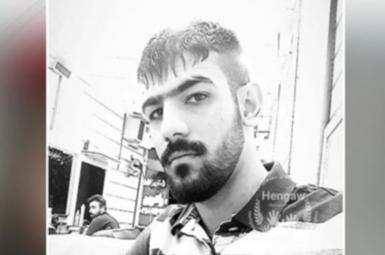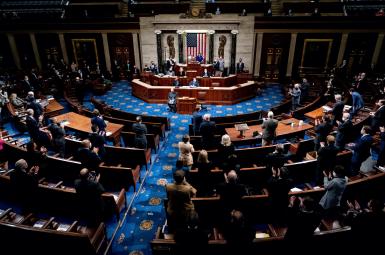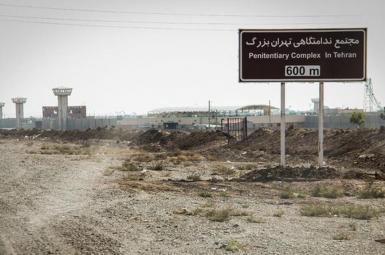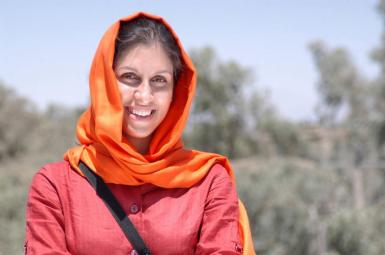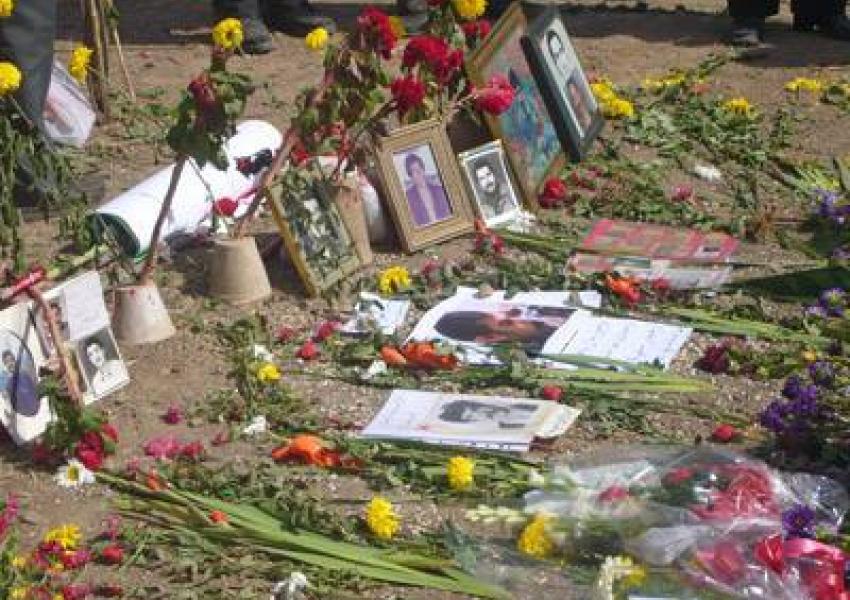
US Human Rights Sanctions On Iran: Going Forward Or Going Backward?
The ascension of Iran’s President-elect Ebrahim Raisi is already causing complications for the Biden administration’s strategy, which aims to use the 2015 nuclear deal as a platform to ink longer, stronger, and broader deals with Tehran. On Monday, the president-elect ruled out meeting with President Biden and stated clearly that the regime’s ballistic missile program and regional policy were non-negotiable. That is not to mention repeated questions are being raised over whether the United States would be willing to remove Raisi’s sanctions designation as a price for re-entry into the nuclear deal as he would be the first sitting president to be under U.S. sanctions while in office since the Islamic Republic’s founding.
Two Biden administration press secretaries—at The White House and the US State Department—generated even more speculation yesterday in their answers to questions surrounding Raisi’s slot on the US Treasury Department’s list of Specially Designated Nationals and Blocked Persons. Both press secretaries said, “the new president will be accountable for gross violations of human rights on his watch going forward.” But what about going backward?
President-elect Raisi was sanctioned under Executive Order 13876, which authorized sanctions on those officials associated with the supreme leader and his office. In the designation itself, the Trump administration’s rationale stemmed from his long tenure in the judiciary. It cited the number of child offenders on death row in Iran at the time; Raisi’s involvement in the regime’s crackdown on the Green Movement protesters in 2009; and most infamously Raisi’s role on a death commission in 1988 which greenlighted the executions of thousands of political prisoners. Such reasons justifying Raisi’s sanctions were both current and historical. Yet the Biden administration’s careful messaging yesterday on sanctions based on his conduct “going forward” calls into question its readiness to maintain Raisi’s sanctions designation.
But the controversy over the president-elect raises an even larger concern: it is not only Raisi who is sanctioned under Executive Order 13876. Iran’s supreme leader, his son Mojtaba Khamenei, the head of the Office of the Supreme Leader Mohammad Mohammadi Golpayegani, Khamenei’s chief personal aide Vahid Haghanian, and other powerful actors in the Iranian establishment are designated under this authority. Raisi’s power pales in comparison to the true decision-maker of the regime—Ayatollah Khamenei. Is the Biden administration preparing to lift these designations as well or Executive Order 13876 in its entirety? As Iran International has previously reported, the sanctioning of the supreme leader and his office remains a sticking point in the Vienna negotiations on reviving the nuclear deal.
If the Biden administration telegraphs a willingness to rescind these designations, it is also undermining a core argument it routinely makes as to the nuclear deal’s utility. In May, the U.S. State Department spokesman said, “there is nothing in the JCPOA that removes sanctions as a policy tool to address” Iran’s non-nuclear malign behavior. But if Washington lifts sanctions on these individuals—who were sanctioned arguably for non-nuclear conduct—it is signaling that the nuclear deal does constrain the United States in holding Tehran accountable for its other malign behavior. The Biden administration will face similar questions if it decides to relieve terrorism sanctions on Iran’s Central Bank, the National Iranian Oil Company, and other entities.
President Biden also needs to be concerned about the broader signals that lifting sanctions on these individuals sends to the world. During the campaign, he wrote in an op-ed for CNN that “we will continue targeted sanctions against Iran’s human rights abuses, its support for terrorism and ballistic missile program.” Relaxing sanctions on some of the worst actors in the Iranian system on these files—for example Khamenei and Raisi—would send a troubling message.
There does exist separate authority that the Biden administration can use to redesignate individuals like the Iranian president-elect, should Washington rescind Executive Order 13876 or any of its designations. For example, Executive Order 13553 authorizes sanctions on Iranian officials engaged in serious human rights abuses. In fact, President-elect Raisi’s predecessor as chief justice, Sadegh Larijani, was sanctioned under this authority.
But in the end, Washington needs to make clear—with actions—that the nuclear deal does not constrain its policy options in addressing the Iranian threat if it wants to ensure the durability of the accord. Beyond sanctions, there has also been a reluctance in this administration to hold Iran accountable kinetically for the repeated attacks of its militias in Iraq—via drone and rockets—beyond one strike at the beginning of the administration. Relieving non-nuclear sanctions in exchange for re-entry to a nuclear deal which has already started to expire will be sending a concerning message.
At her confirmation hearing in March, US Deputy Secretary of State Wendy Sherman stated that “2021 is not 2015 when the deal was agreed, nor 2016 when it was implemented. The facts on the ground have changed, the geopolitics of the region have changed, and the way forward must similarly change.” The Biden administration must prove its commitment to that statement both in word and deed.


